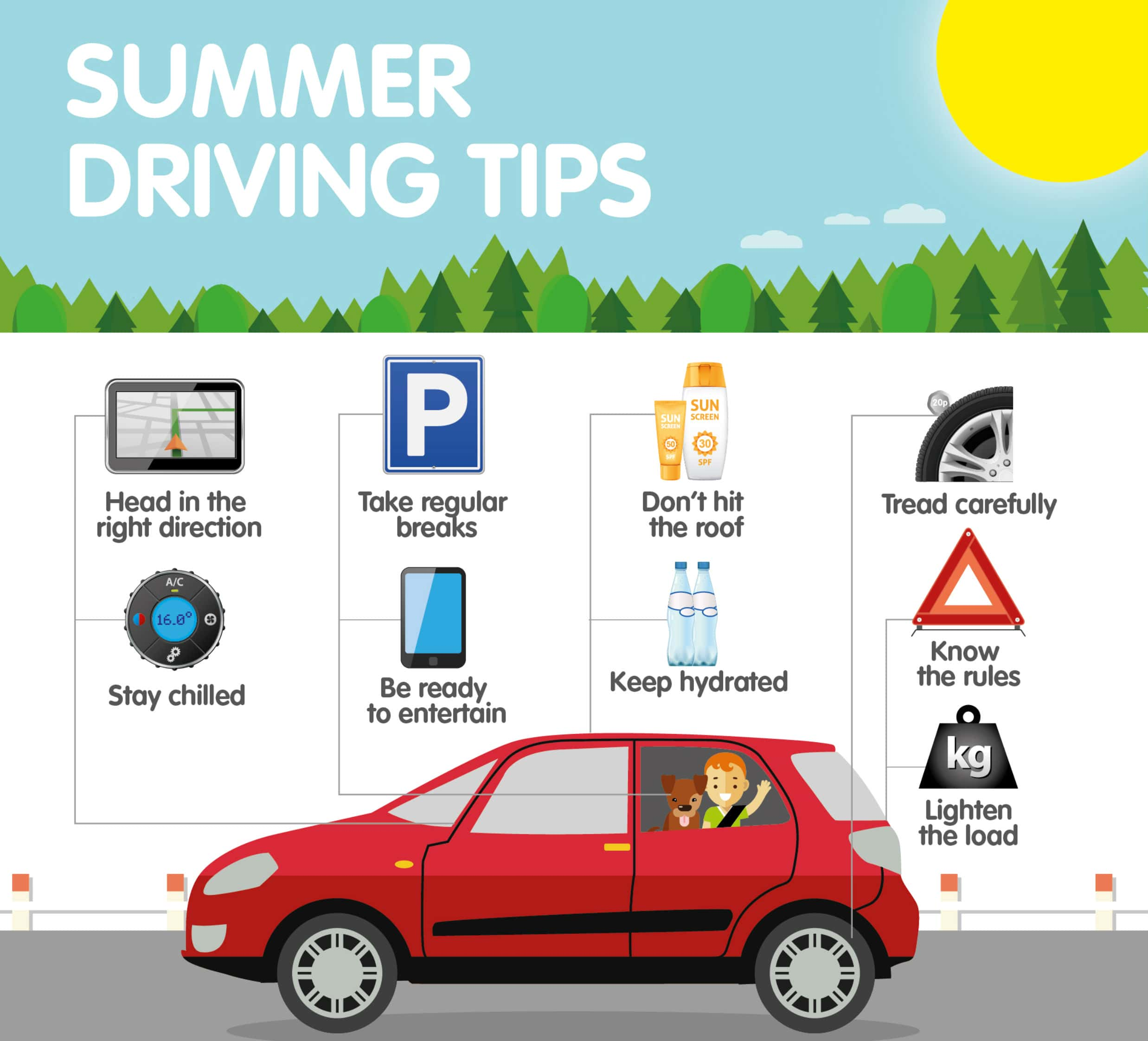Summertime typically entails vacations and road trips for many of us. It’s a good idea to look over these summer driving safety advice right now. You might be able to avoid dealing with the effects of a breakdown, or worse, a highway crash, with a little preparation and safety measures.

Take Note for These Best Summer Driving Tips
In an article from NHTSA, here are some tips for a best summer driving:
As the temperature rises, your air conditioning system has to work harder to keep your car cool. A/C performance should be checked before a trip. Everyone is impacted by the absence of air conditioning on a hot summer day, but the elderly and those in poor health who are susceptible to heat are at special risk.
When it comes to fatalities from heatstroke in youngsters, the summer months have been shown to be particularly dangerous. When a child is left unattended in a parked car or manages to get inside one, heatstroke in vehicles frequently results. Never, not even for a few minutes, leave kids unattended in a car. Cars heat up very quickly. Even when the windows are cracked and the outside temperature is in the 70s, the temperature inside a car can rise dangerously quickly. In comparison to adults, children’s body temperatures rise three to five times more quickly.
Belts and Hoses: In the heat of the summer, rubber belts and hoses deteriorate more quickly. Look under the hood and check all of the belts and hoses to make sure the rubber is free from any bulges, blisters, cracks, or cuts. If they exhibit obvious wear, it’s advisable to replace them right away. While you’re at it, check the integrity of all hose connections.
Check for Recalls
Tires: Ensure that each tire is inflated to the manufacturer’s recommended pressure, which can be found in your owner’s handbook and on a label on the driver’s door pillar or door frame. If your vehicle has a spare tire, make sure to check it as well. Check tire pressure when the tires are cold, which means they haven’t been driven on for at least three hours, to get an accurate reading. Never fill your tires more than the tire’s specified pressure. That number shows the tire’s maximum allowable pressure, not the pressure that is best for your car. It doesn’t take a puncture for a tire to lose air. Over time, all tires inevitably lose some air. In actuality, underinflation is the main reason why tires fail.
Fluid Level
Regularly check the oil level in your car. Like with coolant, this would be a good time to change the oil if it is due or even just about due. Check the levels of the brake, automatic gearbox or clutch, power steering, and windshield washer fluids as well.
Verify that each reservoir is full, and have your car serviced if you see any fluid leaks.
Batteries: Have your battery and charging system checked by a mechanic, who should also perform any necessary repairs or replacements. Keep petrol in the tank to sustain the gasoline engine in hybrid electric vehicles.
Lights: Inspect your interior and exterior lights, turn signals, emergency flashers, brake lights, and headlights. Make sure to check your turn signals and trailer brake lights as well, if necessary.
Seat Belts: Fasten Yours. Every journey. Each time. Ensure that all passengers are secured in seat belts or booster seats that are suitable for their age and size.
READ ALSO: How To Stay Cool In Summer Amidst Severe Heat Inside and Outside Homes
Some Tips Before You Go
It’s wise to put together an emergency roadside kit to keep with you because even well-maintained vehicles might break down. The top item on the list of advised emergency kit supplies is a cell phone because it enables you to call for assistance whenever and wherever you need it.
Plan Your Route
Always check the weather, traffic, and road conditions before leaving. Allow plenty of time for your journey; don’t try to arrive at your location quickly. Even if you use a GPS, you should always familiarize yourself with directions and maps before you travel. You should also let people know your intended route and expected arrival time.
READ ALSO: Staying for the Summer In New York City? Here are 5 things you can do to beat the summer heat



